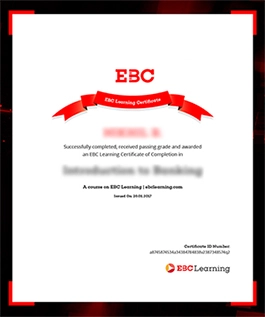How to Create a Will?
About Course
Planning for the disposal of your estate is often postponed as it is rarely something that one considers urgent. But it is the most important document to prepare if one cares about who should inherit what.
This course covers a comprehensive discussion on the concept of a will, provisions of the Indian Succession Act,1925 relating to testamentary succession and types of privileged and unprivileged wills. This course goes into various aspects like who can make a will, what can and cannot be included in a will and important aspects related to altering, modifying, revocation and rectification of wills.
A short discussion on wills made by Muslims as governed by their personal laws is also included in this course. The course also discusses common clauses used while drafting a will.

Wills are trumped by legal titles to real estate or beneficiary designations on financial accounts, retirement plans and insurance policies.
Jean Chatzky- 01. Introduction
- 1.1 Introduction
- 02. Concept of a will
- 2.1 What is a will?
- 2.2 Who can make a will?
- 2.3 The right time to make a will
- 2.4 Why make a will?
- 2.5 Exercises
- ☆ Feedback
- 03. Making a valid will
- 3.1 Criteria for a valid will
- 3.2 Role of witnesses
- 3.3 Concept of codicil
- 3.4 Exercises
- 04. DIY wills
- 4.1 Creating DIY wills
- 5. Privileged wills
- 5.1 Concept of privileged wills
- 5.2 Characteristics of privileged will
- 5.3 Revocation of privileged wills
- 5.4 Exercises
- 06. Other types of wills
- 6.1 Unprivileged wills
- 6.2 Conditional/ contingency wills and concurrent wills
- 6.3 Living will
- 6.4 Will by a Muslim
- 6.5 Exercises
- 07. Changing or altering or revoking a will
- 7.1 Changing or altering a will
- 7.2 Revoking a will
- 7.3 Reviving a will
- 7.4 Exercises
- 08. Registration of a will
- 8.1 Registering a will
- 8.2 Date of operation of a will
- 09. Safe custody of will
- 9.1 Importance of safe custody of a will
- 10. Construction of clauses in a will
- 10.1 Construction of clauses
- 10.2 Identity of persons/ property in the will
- 10.3 Inconsistencies in clauses
- 11. Bequests
- 11.1 What is a bequest?
- 11.2 Types of bequests
- 11.3 Void bequests
- 11.4 Specific or demonstrative legacies
- 11.5 Ademption of legacies
- 12. Doctrine of election
- 12.1 Doctrine of election
- 13. Proving and disputing a will
- 13.1 Proving a will
- 13.2 Disputing a will
- 13.3 Determining the genuineness of will
- 13.4 Exercises
- 14. Execution of a will
- 14.1 Executor of a will
- 14.2 Probate of a will
- 14.3 Exercises
- 15. Creating a will
- 15.1 Planning a will
- 15.2 Digital assets
- 15.3 Drafting a will
- 16. Conclusion
- 16.1 Conclusion
- ☆ Feedback
Why Take This Course?
This is a comprehensive course on the creation of wills. If you are planning to make your will but haven't been able to make a proper plan and outline for it, this course can be your perfect guide. In this course, we have covered the concept of testamentary succession, types of wills, who can make a will, what can be the subject of your will, concept of digital assets, alteration, modification, revocation and rectification of wills.
This course also covers the requirements of a valid will and how to prove or dispute a will. Another important aspect covered in this course is the execution and registration of a will.
If you are a law student or a legal professional, this course will help you understand the legal aspects of testamentary succession. This course also discusses the important clauses that can be incorporated in a will, that would definitely help while advising your clients.
Instructors

Milind Kumar
Milind Kumar is a seasoned arguing counsel and Advocate on Record, Supreme Court of India. He is standing counsel for the states of Rajasthan and Odisha. He is a dual qualified Solicitor, England and Wales, a gold medalist and a published author.

Presented by: Dr Charu Mathur
Instructor, EBC Learning & AOR, Supreme Court
Dr Charu Mathur is an Advocate on Record with the Supreme Court of India. She has over 20+ years of rich and diverse expertise in corporate, commercial, civil, criminal and constitutional law matters.

Estate planning is an important and everlasting gift you can give your family. Setting up a smooth inheritance isn't as hard as you might think.
Suze OrmanCertificate
Complete this course and exercises to earn a certificate. Share it with your friends, colleagues, and employers.*
*You must Subscribe to get a certificate.

Limit Reached or Trial Expired
You have reached the limit of 2 audit enrollments or your trial period has expired.

